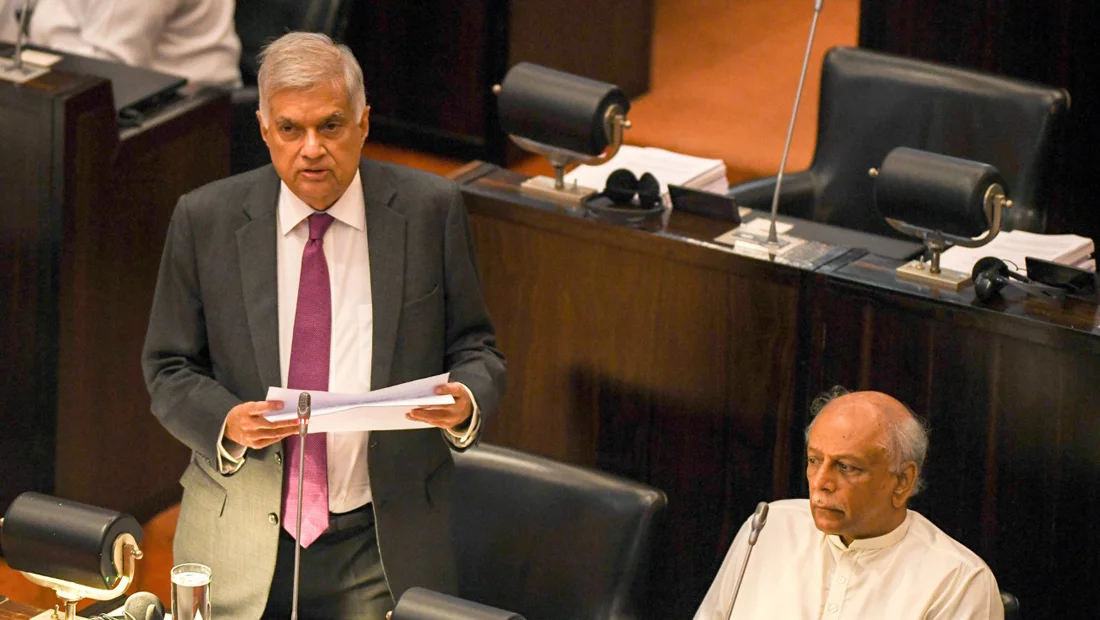General
Sri Lanka parliament passes 2022 interim budget with 120 votes


ECONOMYNEXT – Sri Lanka’s parliament passed an interim budget for 2022 with 120 votes for and 5 against in its second reading at the parliament.
43 MPs abstained from voting.
Three legislators from marxists Janatha Vimukthi Peramuna (JVP) and two MPs from All Ceylon Tamil Congress voted against the interim budget.
During the Friday debate both main opposition SJB and fraction of ruling party said they have decided to refrain from voting.
Related:
Sri Lanka main opposition, dissident MPs to sit out crucial budget vote
The interim budget was presented by President Ranil Wickremesinghe on August 30 with ambitious government revenue and debt reduction targets as the island nation struggles to get out of the worst economic crisis in its post-independence era.
The budget is aimed at almost doubling the tax-to-GDP ratio to 15 percent by 2025 from 8.2 percent at the end of 2021. Wickremesinghe raised the value added tax to 15 percent with effect from Thursday September 01 from 12 percent. The increase comes after he raised the VAT to 12 percent on May 31 from an earlier percent.
It also seeks to introduce compulsory tax registration for all residents who are above 18 years of age without considering their annual income and tax-free thresholds.
Presenting the budget, Wickremesinghe, who is also Finance Minister, said the government plans to reduce public sector debt from around 110 percent of GDP as at end 2021, to no more than 100 percent of GDP in the medium term
The interim budget comes amid a foreign exchange shortage coming from excessive money printing to target a call money rate which has severely depleted forex reserves.
With the International Monetary Fund coming in, politicians have started to back restructuring of state owned enterprises (SOEs) and against political appointments into government entities.
President WIckeremesinghe said a separate agency will be set up to re-structure state enterprises.
A new monetary law was also presented in the budget reading to prevent money printing and political interference in the Central Bank.
Wickremisnghe said the proposed legislation would provide the framework for effective implementation of inflation targeting and prevent monetary financing of the budget deficit – what is commonly known as money printing.
A new mechanism was also presented to find eligible welfare beneficiaries in the country for better-targeted welfare programmes and cash transfers that will be made directly to beneficiaries’ bank accounts. (Colombo/Sep02/2022)








